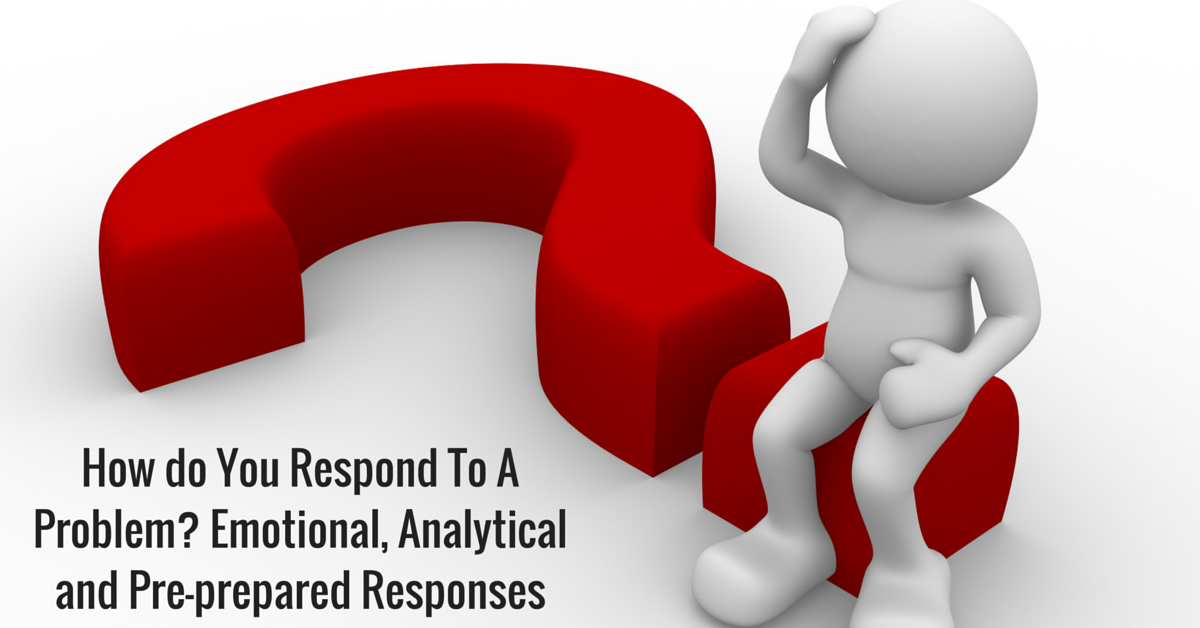Why does describing a problem usually lead to better results?
How many times have you heard people in authoritative or troubleshooting positions say this to you: What is the problem? Can you describe it?
Being able to describe a problem, defining it – identifying the parts that need immediate attention and the ones that can be dealt with sometime later, deciding which issues you can just ignore, introspecting about what caused the problem, what skills you can add to your kitty to effectively deal with the problem is crucial. It helps you to evaluate the challenge with cold logic rather than evoking emotional responses.
When it comes to risks, problems, dangers, decision making – emotional responses are terrible – and exactly what you need to teach yourself to avoid. We are hardwired to take emotional decisions – to make fight or flight decisions whenever we are threatened to the slightest, or even attracted to something.
Promptness of action is crucial in moments of distress and threat – emotional responses are quickest decisions. It is easy to fall for the trap of generating emotional responses whenever we need quick, immediate act. There is hardly any time for elaborate analysis!
Here are all the possibilities why you may give emotional response to something:
- Someone has pressed your emotional hot buttons and is trying to evoke the emotional response. This is what marketers, advertisers, movie makers, novelists and politicians are always trying to do. They don’t want us to analyse their content with cold logic – they want you to get emotional about whatever content they are providing to you.
- You are facing an emergency – in need of a quick decision. No time to analyse – so you go by your “gut feeling”.
- Going by gut feeling is another name for emotional prejudice.
- You are just being lazy, or overconfident and do not want to do the hard mental work.
- The analytical part of your brain is underdeveloped or is decaying due to non-use.
Logical question that follows is this:
What can we do when we are facing an emergency, need an immediate answer, and have no time to analyse?
Prepare ahead. Make checklists. Do risk assessments. Conduct trials, dry runs and beta tests to identify what emergencies can happen whenever possible. Predict what emergencies can happen in the future so that you have a ready response. What are the best kinds of responses? Remember that not analytical, not emotional, but pre-prepared responses are usually the best ones.
Describe a problem even before it arises. If you failed to describe it before it arises, I hope you have enough time to describe it now.
 Serato DJ Crack 2025Serato DJ PRO Crack
Serato DJ Crack 2025Serato DJ PRO Crack








 Allow notifications
Allow notifications


